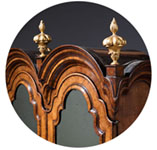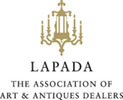George I Burr and Highly Figured Walnut Lowboy
Circa 1720. England
SOLD
Request Information
Follow Us
George I Burr and Highly Figured Walnut Lowboy, Circa 1720. England
The feather and cross banded top is quarter veneered with burr walnut and edged with a cross-grain ovolo-moulding, Similarly, the shaped frieze is fitted with three feather and cross-banded cock-beaded oak lined drawers, which all retain their original gilt brass handles. The lowboy is raised on solid walnut cabriole legs on pad feet.
Condition
Provenance
Private collection, Salisbury
Literature
Dimensions
PREVIOUSLY SOLD
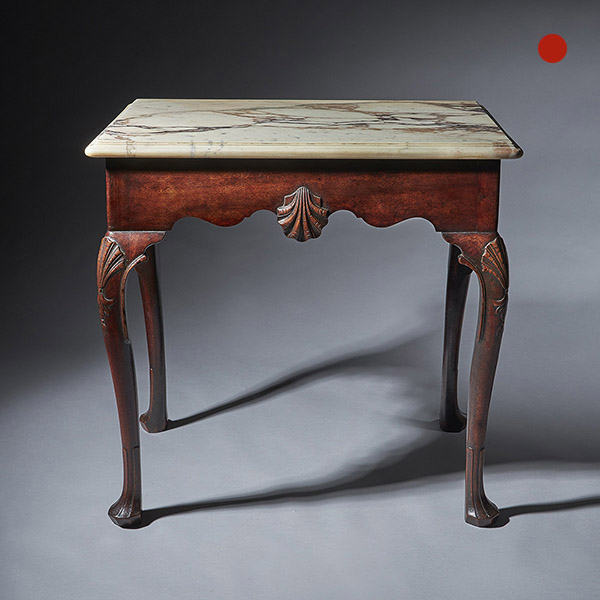
A Delightful Mid 18th Century Irish Mahogany Console Table of Small Proportions (29”) Circa 1750-1760.
A Rare Mid 18th-Century Irish Mahogany Console Table of Small Proportions (29”)
With Moulded Edged Calacatta Rosati Marble.
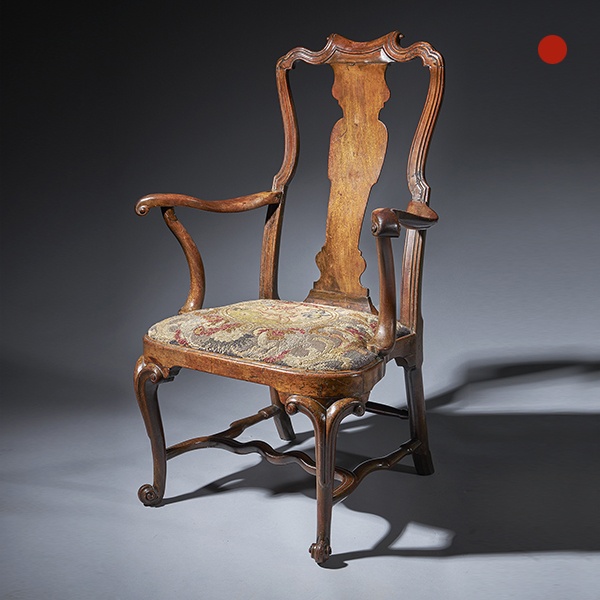
An extraordinary George I walnut armchair Circa 1725, England
An extraordinary George I walnut armchair of fabulous colour, form and patination. The chair is of the most lively shapes being either carved or turned.
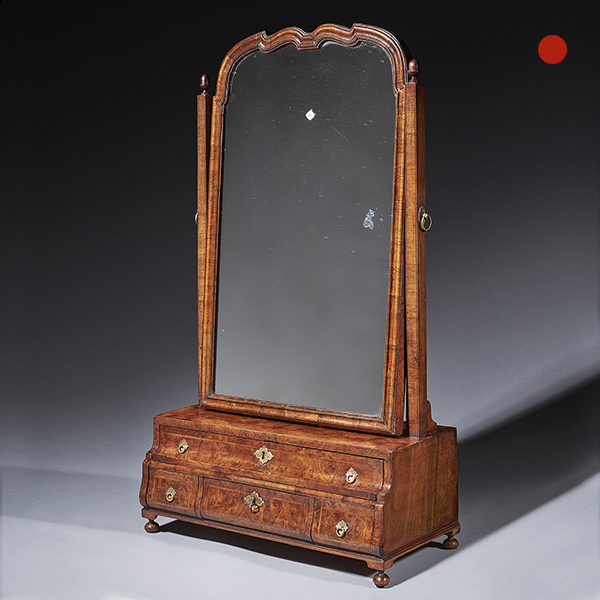
A fine burr walnut George I dressing mirror. Circa 1715-25 England.
A fine burr walnut George I dressing mirror Circa 1715-25 England. SoldFollow UsA fine burr walnut George I antique dressing mirror An extremely rare and fine George I burr walnut dressing mirror raised on ball and bracket feet. The drawer...
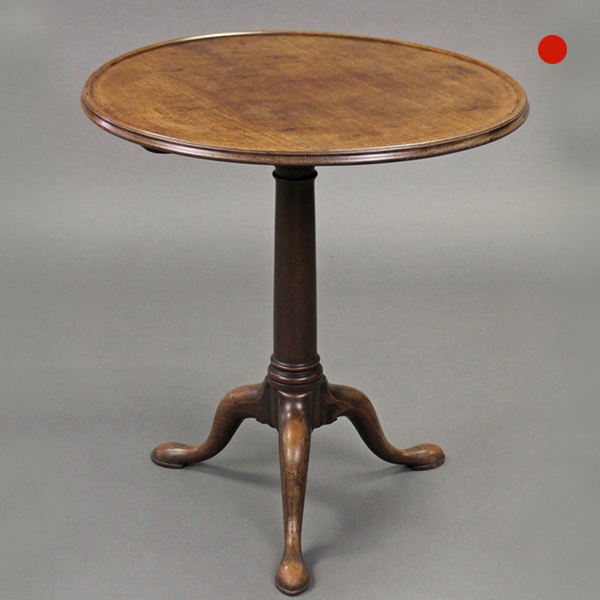
George III Mahogany Gun Barrel Tray Top Tripod Table Sofa Table Chippendale Period
A George III Mahogany Gun Barrel Tray Top Tripod Table, Sofa Table, Chippendale Period, circa 1770-1790, England. The circular tray top with moulded edge is raised on a gun-barrel centre column and cabriole legs with shaped pad feet.
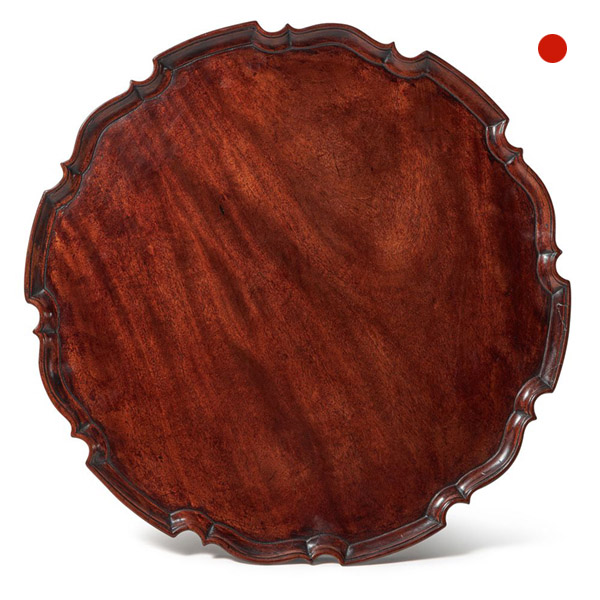
George III Chippendale Period Mahogany Pie Crust Tray
A fine George III Chippendale period mahogany pie crust tray, circa 1770, England. Of circular form, with a carved and shaped edge. Alexander George Fine Antique sell 18th & 19th century antique English furniture.
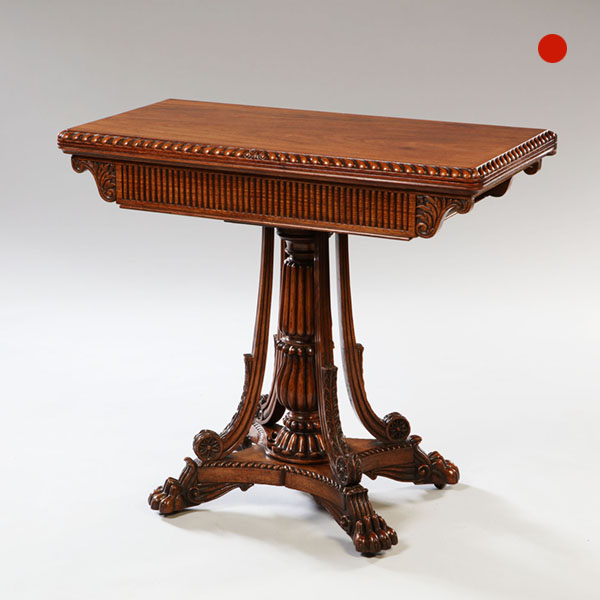
Solid Padauk Carved Anglo-Indian Card Table
Solid Padauk Carved Anglo-Indian Card Table. With the growth of trade and military power, the East India Company encouraged its British male employees to create a community with mixed ancestry. The company paid 15 silver rupees to the mother of any child born of such marriages.

A Delightful Mid 18th Century Irish Mahogany Console Table of Small Proportions (29”) Circa 1750-1760.
A Rare Mid 18th-Century Irish Mahogany Console Table of Small Proportions (29”)
With Moulded Edged Calacatta Rosati Marble.

An extraordinary George I walnut armchair Circa 1725, England
An extraordinary George I walnut armchair of fabulous colour, form and patination. The chair is of the most lively shapes being either carved or turned.

A fine burr walnut George I dressing mirror. Circa 1715-25 England.
A fine burr walnut George I dressing mirror Circa 1715-25 England. SoldFollow UsA fine burr walnut George I antique dressing mirror An extremely rare and fine George I burr walnut dressing mirror raised on ball and bracket feet. The drawer...

George III Mahogany Gun Barrel Tray Top Tripod Table Sofa Table Chippendale Period
A George III Mahogany Gun Barrel Tray Top Tripod Table, Sofa Table, Chippendale Period, circa 1770-1790, England. The circular tray top with moulded edge is raised on a gun-barrel centre column and cabriole legs with shaped pad feet.

George III Chippendale Period Mahogany Pie Crust Tray
A fine George III Chippendale period mahogany pie crust tray, circa 1770, England. Of circular form, with a carved and shaped edge. Alexander George Fine Antique sell 18th & 19th century antique English furniture.

Solid Padauk Carved Anglo-Indian Card Table
Solid Padauk Carved Anglo-Indian Card Table. With the growth of trade and military power, the East India Company encouraged its British male employees to create a community with mixed ancestry. The company paid 15 silver rupees to the mother of any child born of such marriages.
YOU MAY ALSO LIKE
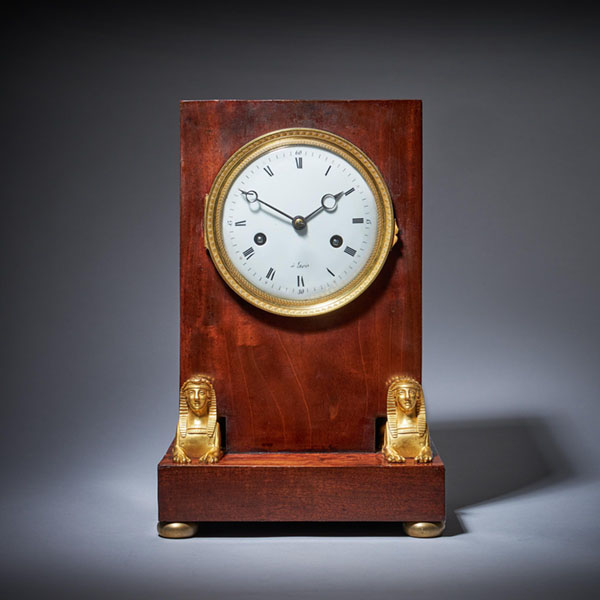
19th-Century French Flame Mahogany Napoleon Empire Period Mantel Clock
19th-Century French Flame Mahogany Napoleon Empire Period Mantel Clock £6,800 [wpforms_selector form_id="11387" show_title="on" _builder_version="4.22.1" _module_preset="default" custom_margin="-30px||||false|false" global_colors_info="{}"...
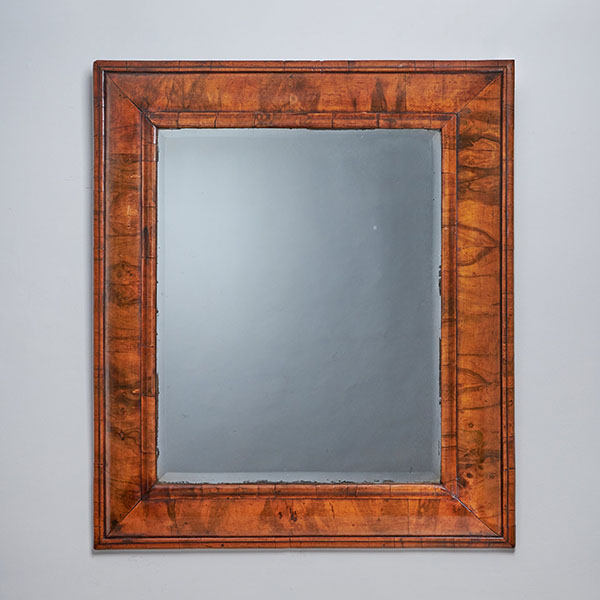
Large William and Mary 17th Century Figured Walnut Cushion Mirror c, 1690
Large William and Mary 17th Century Figured Walnut Cushion Mirror c, 1690 £7,495[wpforms_selector form_id="11387" show_title="on" _builder_version="4.22.1" _module_preset="default" custom_margin="-30px||||false|false" global_colors_info="{}"...
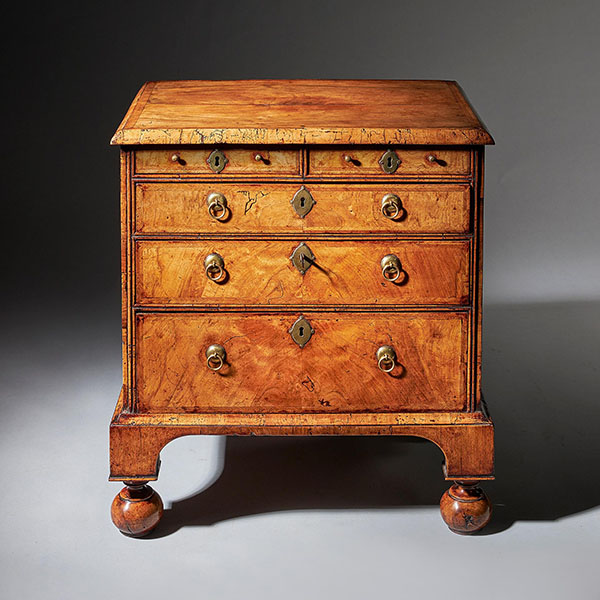
An extremely rare George I walnut chest of small proportions on ball and bracket
An extremely rare George I walnut chest of small proportions on ball and bracket £18,800[wpforms_selector form_id="11387" show_title="on" _builder_version="4.22.1" _module_preset="default" custom_margin="-30px||||false|false"...
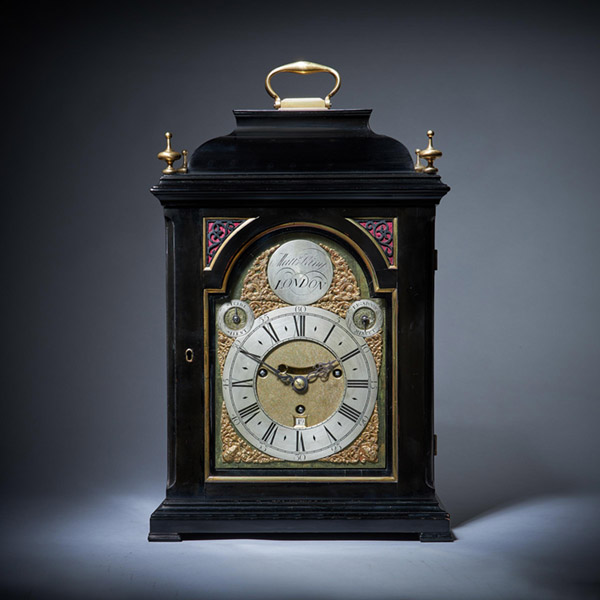
A Rare 18th Century George II Musical Table Clock by Matthew King, c. 1735.
A Rare 18th Century George II Musical Table Clock by Matthew King, c. 1735. £24,500[wpforms_selector form_id="11387" show_title="on" _builder_version="4.22.1" _module_preset="default" custom_margin="-30px||||false|false"...
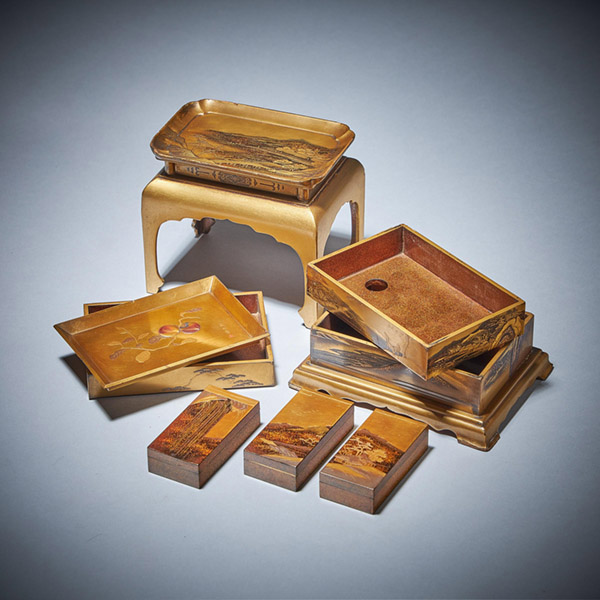
Signed Mid 19th C. Edo/Meiji Period Diminutive Lacquer Stacking Cabinet, Japan
Signed Mid 19th C. Edo/Meiji Period Diminutive Lacquer Stacking Cabinet, Japan £5,800[wpforms_selector form_id="11387" show_title="on" _builder_version="4.22.1" _module_preset="default" custom_margin="-30px||||false|false"...
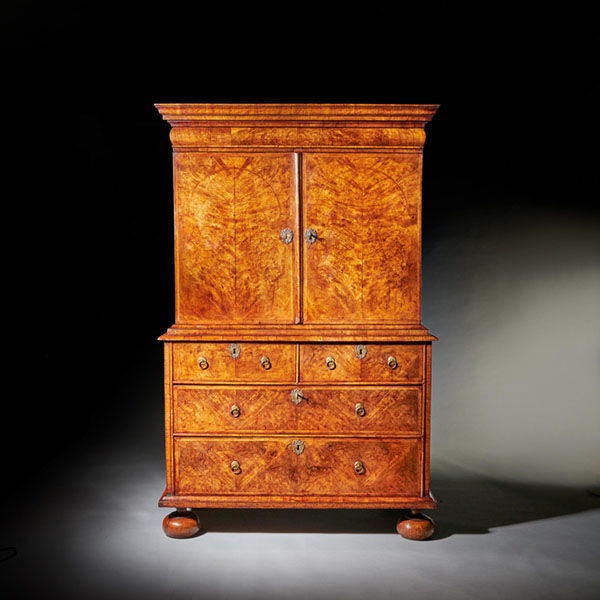
A Fine 17th Century William and Mary Burl Walnut Cabinet on Chest, Circa 1690
A Fine 17th Century William and Mary Burl Walnut Cabinet on Chest, Circa 1690 £27,800[wpforms_selector form_id="11387" show_title="on" _builder_version="4.22.1" _module_preset="default" custom_margin="-30px||||false|false"...

19th-Century French Flame Mahogany Napoleon Empire Period Mantel Clock
19th-Century French Flame Mahogany Napoleon Empire Period Mantel Clock £6,800 [wpforms_selector form_id="11387" show_title="on" _builder_version="4.22.1" _module_preset="default" custom_margin="-30px||||false|false" global_colors_info="{}"...

Large William and Mary 17th Century Figured Walnut Cushion Mirror c, 1690
Large William and Mary 17th Century Figured Walnut Cushion Mirror c, 1690 £7,495[wpforms_selector form_id="11387" show_title="on" _builder_version="4.22.1" _module_preset="default" custom_margin="-30px||||false|false" global_colors_info="{}"...

An extremely rare George I walnut chest of small proportions on ball and bracket
An extremely rare George I walnut chest of small proportions on ball and bracket £18,800[wpforms_selector form_id="11387" show_title="on" _builder_version="4.22.1" _module_preset="default" custom_margin="-30px||||false|false"...

A Rare 18th Century George II Musical Table Clock by Matthew King, c. 1735.
A Rare 18th Century George II Musical Table Clock by Matthew King, c. 1735. £24,500[wpforms_selector form_id="11387" show_title="on" _builder_version="4.22.1" _module_preset="default" custom_margin="-30px||||false|false"...

Signed Mid 19th C. Edo/Meiji Period Diminutive Lacquer Stacking Cabinet, Japan
Signed Mid 19th C. Edo/Meiji Period Diminutive Lacquer Stacking Cabinet, Japan £5,800[wpforms_selector form_id="11387" show_title="on" _builder_version="4.22.1" _module_preset="default" custom_margin="-30px||||false|false"...

A Fine 17th Century William and Mary Burl Walnut Cabinet on Chest, Circa 1690
A Fine 17th Century William and Mary Burl Walnut Cabinet on Chest, Circa 1690 £27,800[wpforms_selector form_id="11387" show_title="on" _builder_version="4.22.1" _module_preset="default" custom_margin="-30px||||false|false"...
